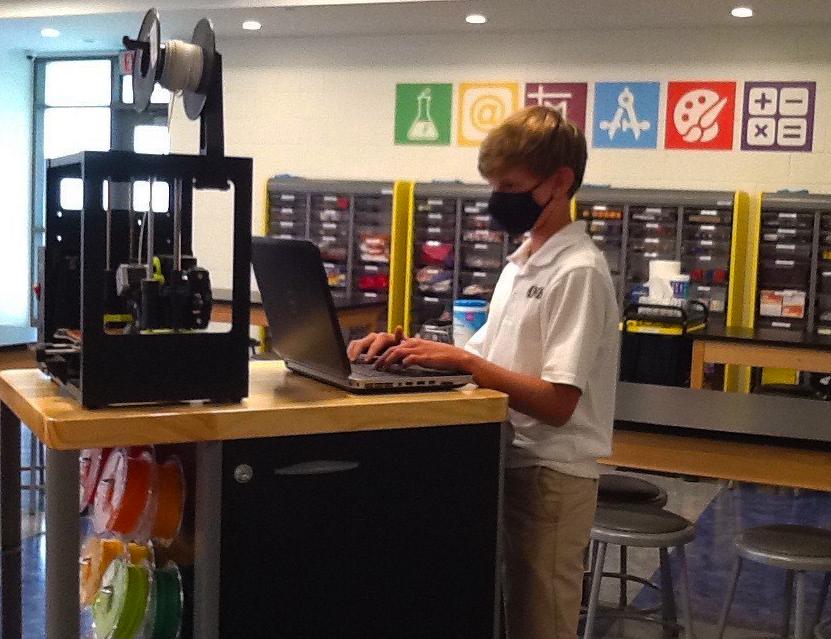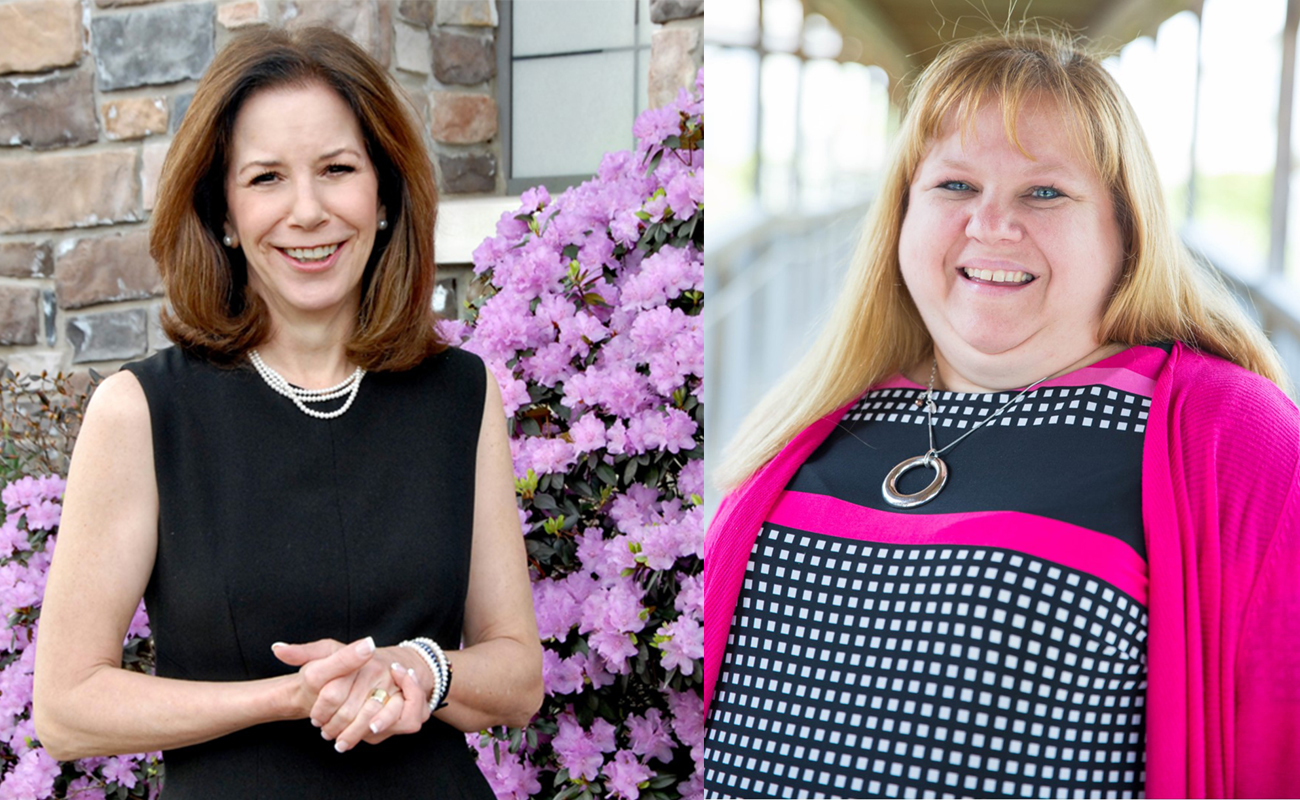
A student at Mary, Mother of the Redeemer School in North Wales works on a project as part of the school’s STREAM program, which blends science, technology, religion, engineering, art and mathematics. (Photo courtesy of Mary, Mother of the Redeemer School)
Students at one archdiocesan school spent the past academic year tackling some of the planet’s greatest challenges — and recently, they unveiled their cutting-edge solutions to everything from water scarcity to educational inequality.
Earlier this month, classes at Mary, Mother of the Redeemer (MMR) School in North Wales uploaded a virtual overview of the projects they developed for their STREAM program, which encompasses science, technology, religion, engineering, art and mathematics.
In the curriculum’s “Innovation Lab,” students from preK to grade eight applied their coursework to the real-world issues addressed by the United Nations’ 17 Sustainable Development Goals (SDGs). Adopted by UN member states in 2015, the goals provide what the agency calls a “shared blueprint” for long-term peace and prosperity through social justice, environmental protection and economic development.
Supported by a grant from BLBB Charitable, the STREAM program was launched some five years ago, with students spending time each week learning about the SDGs and the issues behind them.
[hotblock]
But the first lesson is on caring for those around them, said program coordinator Lisa Bull.
“We are teaching the children at a young age that we have a responsibility to the whole world as global citizens to solve problems that affect all of us in a real-life manner,” she said.
With the SDGs as a map, said Bull, “we interact with our students in a way that leads them to self-discovery through empathy for others.”
Since 2019, MMR (twice named a Blue Ribbon School of Excellence) has showcased the students’ labors at Innovation Night, which was moved online this year due to COVID restrictions. Speaking in an introductory video for the various presentation recordings, MMR principal Denise Judge cautioned viewers “this is not a science fair.”

Principal Denise Judge (left) and STREAM coordinator Lisa Bull (right) of Mary, Mother of the Redeemer (MMR) School in North Wales said instilling empathy and engagement is at the heart of MMR’s “Innovation Lab.” (Photo courtesy of Mary, Mother of the Redeemer School)
“What you are about to experience is design thinking,” she said.
A grade seven group focused on improving education for children with Down syndrome by developing technology to improve reading comprehension. Since the condition (also known as Trisomy 21) significantly increases the risk of visual and hearing impairment, the students proposed a contact lens connected to an earpiece via Bluetooth, a configuration that would enhance eyesight while translating written words into audio. With a cell phone app mediating the lens and the earpiece, the technology would be “as simple and affordable as possible,” said seventh-grader George.
One eighth grade team sought to expand access to safe, affordable drinking water in Nigeria by purifying sea and rain water. After filtration, desalinization, ultraviolet distillation and chlorination, the harvested water supplies would be distributed through public infrastructure in the African nation and beyond.
[hotblock2]
Working on such initiatives gave students the chance to “use our hands to build, and use our minds in a creative way to problem-solve,” said fifth grader Daniel Fandozzi.
The task also taught the children “not to stereotype other people, and to treat others with respect,” said Emily McMenamin of grade eight.
Preschooler Sadie Moawad said STREAM class offered a way to “learn about kindness” and “to care about others” while studying “the Golden Rule: to love one another.”
Moawad joined grades preK to two in filming a dance video for Innovation Night that extolled Jesus’ love for all peoples – the Gospel grounding of the STREAM program, said Judge.
“When we develop children to be good global citizens, they are well aware that Christ is at the center of the lives of all those that he has created,” she said.
With that knowledge, said Judge, students can use their God-given gifts “to bring forward positive action in today’s world, and in the world ahead.”
PREVIOUS: A year after George Floyd’s death, Gospel message more vital than ever, say pastoral leaders
NEXT: Honor veterans with prayer, gratitude, says military bishop


Share this story